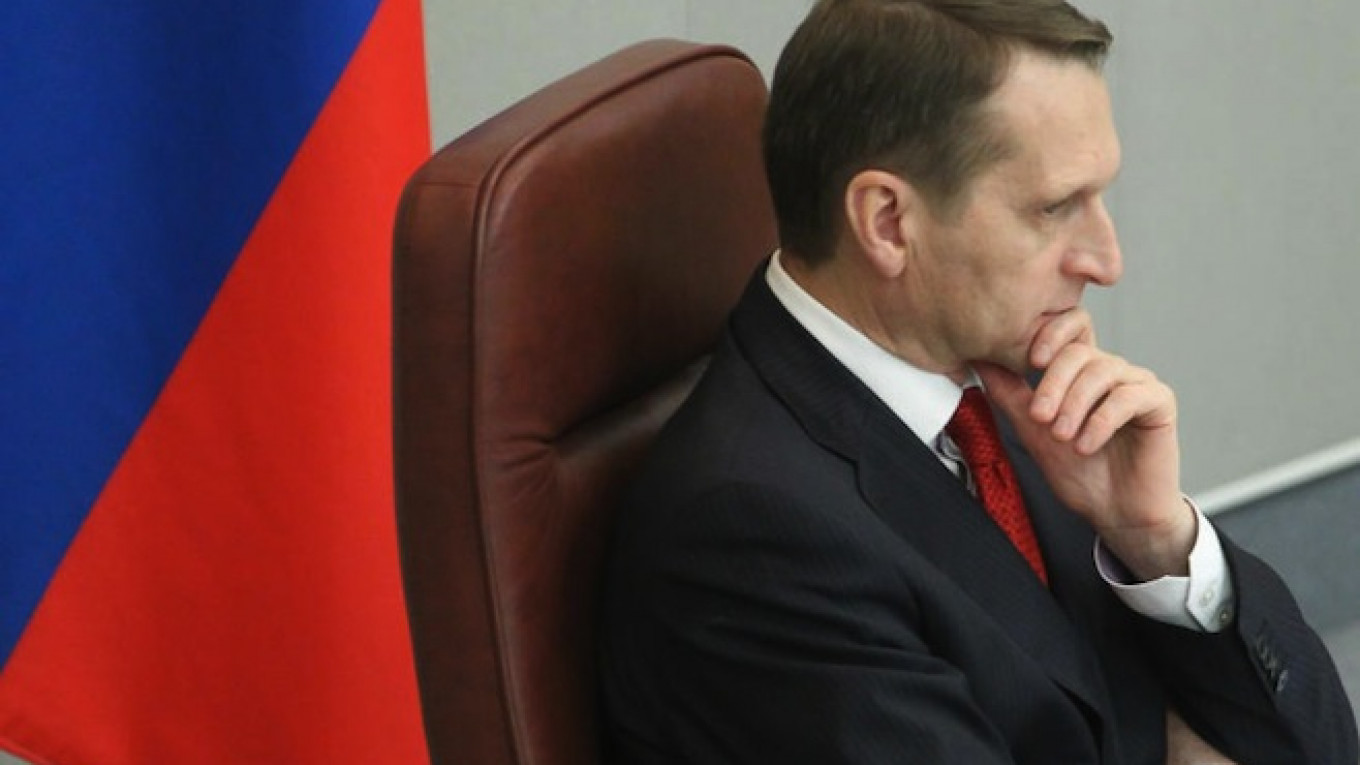The speaker of Russia's lower house of parliament called Tuesday for a new cease-fire in east Ukraine, hours after Kiev ordered a resumption of a military campaign to end a pro-Russian separatist rebellion.
Ukrainian President Petro Poroshenko opted not to extend a cease-fire that had been intended to allow for peace talks with the rebels, saying the separatists had failed to keep to the truce or follow a peace plan he had outlined.
Sergei Naryshkin, chairman of the State Duma lower house and an ally of President Vladimir Putin, criticized Poroshenko's decision in comments to Russian reporters.
"We think that without a truce, without the start of dialogue, it is simply impossible to restore peace, justice and law and order in Ukraine," Naryshkin was quoted as saying by Interfax.
The Kremlin has yet to respond to the end of the cease-fire.
Moscow could face more penalties from the European Union on top of existing asset freezes and visa bans unless pro-Russian rebels act to end the conflict. Moscow denies accusations that it is orchestrating the rebels in east Ukraine.
Another senior parliamentarian, Sergei Mironov, urged Russia to take full control of the border between Russia and the two rebellious regions of Luhansk and Donetsk in east Ukraine.
Mironov, who heads the Just Russia party which has backed Putin throughout the Ukraine crisis, was quoted by RIA news agency as saying this would help establish a humanitarian corridor for refugees wanting to flee the fighting.
Naryshkin accused Ukraine's Western allies of turning a blind eye to what he called human rights abuses and a flood of refugees fleeing Ukraine.
"It is the theater of the absurd," Naryshkin was quoted as saying. He added that representatives of various Western countries were acting strangely, "as if they don't notice what is happening in Ukraine, as if the crisis and civil war are not happening in the center of Europe."
See also:
Poroshenko Ends Cease-Fire, Promises to Attack Rebels in East Ukraine
A Message from The Moscow Times:
Dear readers,
We are facing unprecedented challenges. Russia's Prosecutor General's Office has designated The Moscow Times as an "undesirable" organization, criminalizing our work and putting our staff at risk of prosecution. This follows our earlier unjust labeling as a "foreign agent."
These actions are direct attempts to silence independent journalism in Russia. The authorities claim our work "discredits the decisions of the Russian leadership." We see things differently: we strive to provide accurate, unbiased reporting on Russia.
We, the journalists of The Moscow Times, refuse to be silenced. But to continue our work, we need your help.
Your support, no matter how small, makes a world of difference. If you can, please support us monthly starting from just $2. It's quick to set up, and every contribution makes a significant impact.
By supporting The Moscow Times, you're defending open, independent journalism in the face of repression. Thank you for standing with us.
Remind me later.






